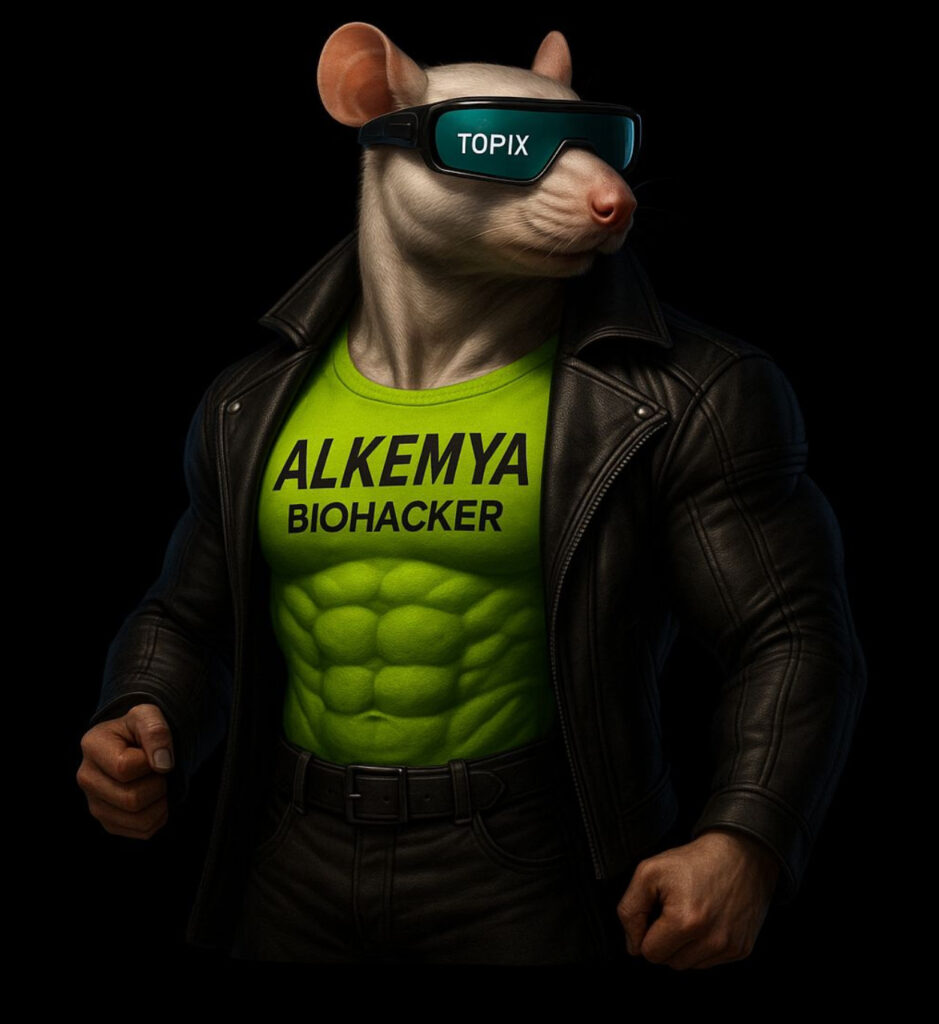Are Therapeutic Peptides The Future of Medicine?
Far from being mere protein fragments, peptides represent the vanguard of an innovative era for human health by offering unprecedented solutions to address some of the most complex challenges of our time.
Their rise marks a departure from conventional therapies, ushering in an era in which personalized treatment and targeted efficacy become the norm, not the exception.
Therapeutic peptides, with their incredible precision and specificity, are transforming the concept of therapy, shifting the focus from symptomatic treatment to targeted correction of the underlying causes of disease.
Their ability to interact with specific cellular targets with minimal side effects is opening new avenues for treating a wide range of conditions, from chronic conditions such as diabetes and rheumatoid arthritis to acute challenges such as infections and trauma.
In this context, peptides are not just therapeutic molecules but true allies of human health, capable of providing us with a new level of well-being and quality of life.
The accessibility and versatility of therapeutic peptides make them particularly attractive.
No longer confined to the remote corners of specialty pharmacies or cutting-edge research laboratories, they are becoming increasingly available to the public.
This shift signals a major advance for health care and protection: therapeutic innovation is no longer a luxury but an affordable commodity that promises to improve the lives of many.
That said, the rise of peptide therapeutics is not without its challenges.
Their sophisticated nature and manufacturing requirements pose questions about how to maximize their efficacy while maintaining accessibility and sustainability.
Moreover, their potential to radically transform the treatment of chronic diseases and conditions highlights the need for a regulatory framework that can keep pace with innovation, ensuring safety and efficacy without stifling progress.
Throughout this article, we will explore the world of therapeutic peptides, from their history and development to current innovations that are shaping the future of human health.
We will discover how these powerful and versatile compounds are not only dominating the field of medical research but also promising to bring a new era of revolutionary therapeutic advances that are accessible to all.
As we venture into this exploration, keep in mind that what once seemed to belong to the realm of science fiction is rapidly becoming a tangible reality, with therapeutic peptides at the center of this momentous transformation.
History and Evolution of Peptides
The history of therapeutic peptides can be traced back more than a century, when scientists and physicians began to recognize the therapeutic potential of compounds derived from natural sources.
A notable example is Alexander Fleming’s discovery of penicillin in 1928, a cyclic peptide produced by fungi, which revolutionized the treatment of bacterial infections.
At almost the same time, the introduction of insulin in 1922 transformed the management of diabetes, offering hope of life to patients suffering from this disease hitherto considered a death sentence.
However, despite these initial successes, the enthusiasm for peptides faced several challenges, including the difficulty of synthesis and administration, which temporarily held back their development.
The Rebirth of Peptides
In recent decades, however, we have witnessed a resurgence of interest in peptides as therapeutic solutions.
The combination of technological advances and a better understanding of molecular biology has made it possible to overcome many of the initial challenges associated with peptides.
Innovative peptide synthesis techniques and more effective delivery methods have opened new avenues for the use of peptides in a wide range of therapeutic applications.

A Promising Future
Today, with more than 800 peptides in clinical development and hundreds already approved for use, the potential of therapeutic peptides no longer knows any limits.
These compounds are finding applications in areas far beyond the treatment of chronic diseases, exploring new territories such as tissue regeneration, gene therapy, and even the fight against global pandemics.
The story of therapeutic peptides is a shining example of how human curiosity, combined with scientific perseverance, can overcome seemingly insurmountable obstacles.
From their humble beginnings as simple natural extracts to their current position as pillars of modern medicine, peptides continue to demonstrate that our journey toward understanding and improving human health is as much an ever-evolving adventure as it is a testament to our collective ingenuity.
With each discovery and innovation, we move closer and closer to unlocking the full potential of peptides, opening up new possibilities for treating disease and improving quality of life for people around the world.
Unique Characteristics and Benefits of Peptides
Therapeutic peptides stand out in the vast landscape of medical treatments because of a number of unique features that offer significant advantages over traditional small molecules and biologics such as antibodies.
These properties make them valuable tools in the fight against various diseases, improving patients’ quality of life and offering new hope where therapeutic options were previously limited.
High Specificity
One of the main advantages of peptides lies in their high specificity of action.
They are able to recognize and bind to specific cellular or molecular targets with high precision, significantly reducing the risk of unwanted side effects.
This specificity stems from their unique three-dimensional structure, which allows a near-perfect fit with their target, similar to a key in its lock.
Such precision is particularly advantageous in the treatment of complex diseases such as cancers, where it is critical to target diseased cells while leaving healthy ones intact.
Fewer Side Effects
Peptide specificity translates directly into a better safety profile.
With fewer off-target interactions, peptides tend to produce fewer side effects than traditional drugs, which can interact with a wide range of receptors and metabolic pathways in the body.
This makes peptides particularly attractive for long-term treatment of chronic diseases, where management of side effects is a critical component of therapeutic success.
Therapeutic Versatility
Peptides show remarkable versatility, finding application in a wide variety of clinical settings.
They can be designed to perform diverse functions, from inhibiting harmful enzymes to mimicking hormones or modulating immune responses.
This ability to tailor the activity of peptides to specific patient needs paves the way for highly targeted and personalized treatments, a cornerstone of future medicine.
Rapid Elimination from the Body
Peptides are generally metabolized and eliminated from the body more rapidly than small molecules, reducing the risk of toxic accumulation and facilitating more controlled treatment management.
This feature is particularly useful in settings where fine control of pharmacokinetics is needed, such as pain management or treatment of acute conditions.
Potential for Innovation
The field of peptide therapeutics is characterized by intense interest and investment in research and development, leading to a steady stream of innovations.
The advent of new peptide synthesis technologies, innovative delivery methods, and the use of artificial intelligence in peptide design are accelerating the discovery and optimization of new therapeutic candidates.
This dynamism ensures that peptides remain at the forefront of medical progress, offering increasingly effective and efficient solutions for a wide range of diseases.
Peptide therapeutics offer a unique combination of specificity, safety, versatility and innovation, distinguishing themselves as a class of drugs with revolutionary potential.
With each new discovery and application, peptides continue to prove their invaluable value as allies in the fight against disease, promising to shape the future of medicine for generations to come.
The Role of Artificial Intelligence in Peptide Discovery.
The evolution of therapeutic peptides has taken an exciting turn with the integration of artificial intelligence (AI) and machine learning (ML) into research and development processes.
These emerging technologies are transforming the field, accelerating the discovery of new peptides with potential therapeutic applications and optimizing existing formulations for greater efficacy and safety.
AI’s role in peptide discovery represents a revolutionary breakthrough, promising to dramatically reduce the time and cost associated with new peptide development, as well as pave the way toward personalized and precision treatments.
Accelerating Discovery
One of the greatest advantages of using AI in peptide research is its ability to analyze huge volumes of data in timescales unthinkable for humans.
Through the application of ML algorithms, researchers can quickly identify patterns and correlations in biological data that could suggest new therapeutic targets or indicate peptides with desired properties.
This process, which once took years of laborious experimentation, can now be completed in months or even weeks, significantly accelerating the pace of scientific discovery.
Personalization of Treatments
AI also opens up new possibilities for personalizing peptide treatments.
By analyzing patient-specific genetic and biomarker data, algorithms can predict which peptides will be most effective for specific individuals or groups, reducing the trial-and-error period typical of drug prescription.
This approach not only increases the likelihood of therapeutic success but also minimizes the risk of side effects, leading to safer and more targeted treatments.
Overcoming Design Challenges
Designing therapeutic peptides involves significant challenges, including the need to ensure stability, bioavailability and target specificity.
Here, AI offers powerful tools to model and predict the structure of peptides and their interactions with molecular targets, enabling researchers to optimize peptide design prior to synthesis.
This “computer-aided design” process greatly reduces iteration cycles in the laboratory, leading to greater efficiency in the development of new compounds.
Case Study: Nuritas and AI-Assisted Discovery.
An emblematic example of the impact of AI in peptide research is the work of Nuritas, a biotech that uses an artificial intelligence platform to discover new peptides.
By combining genetic data, bioinformatics and the vast database of natural peptides with machine learning algorithms, Nuritas is able to predict which peptides will have relevant biological activity, including those with antiviral or anti-inflammatory potential.
This approach has led to the discovery of novel peptides in record time, some of which have promising applications in the treatment of emerging diseases such as COVID-19.
The integration of artificial intelligence into the discovery and development of therapeutic peptides is opening new horizons in medicine.
With its ability to accelerate research, personalize treatments and overcome design challenges, AI is driving a revolution in new peptide discovery, promising to bring more effective and personalized therapies to patients faster than ever before.

Overcoming Barriers to Peptide Adoption.
Despite the many benefits of therapeutic peptides, their path to widespread adoption faces several challenges.
The barriers that make life difficult for peptide adoption range from technical issues to regulations and market acceptance.
This requires innovative solutions and a shared commitment from stakeholders in the biomedical field.
However, the scientific community taking significant steps to overcome these obstacles, paving the way for greater integration of peptides into the therapeutic landscape.
Technical and Delivery Challenges
A major challenge in the development of therapeutic peptides concerns their stability and mode of administration.
Many peptides are rapidly degraded by enzymes in the gastrointestinal tract or blood, reducing their therapeutic efficacy.
Traditionally, this has limited peptides to less convenient routes of administration, such as injections.
Innovative solutions are emerging to address these challenges.
Research is exploring new delivery methods, such as oral delivery systems that protect peptides from enzymatic degradation, or sustained-release formulations that maintain stable therapeutic levels over time.
Other strategies include chemical modification of peptides to improve their stability and bioavailability.
Regulatory Obstacles
The regulatory pathway for approval of new peptide treatments can be complex and time-consuming.
Regulatory agencies, such as the FDA in the United States and the EMA in Europe, require a rigorous evaluation process to ensure safety and efficacy before a new peptide can be approved for clinical use.
To address this challenge, some peptide developers are leveraging real-world data and AI-based predictive analytics to strengthen their regulatory dossiers by demonstrating the efficacy and safety of their products in real-life scenarios in addition to traditional clinical trials.
In addition, early collaboration with regulatory agencies can help them navigate the approval process more smoothly.
Market Acceptance
Acceptance of therapeutic peptides by physicians and patients is another significant challenge.
Despite their obvious benefits, familiarity and trust with conventional treatments can slow the adoption of new peptide therapies.
Educating the community about the unique benefits of peptides, along with publishing clinical trials and reviews demonstrating their efficacy and safety, is critical to increasing their acceptance.
In addition, testimonials from patients who have benefited from peptide treatments can play an important role in changing perceptions.
The challenges to the adoption of peptide therapeutics are significant, but not insurmountable.
Through continued innovation, collaboration among biomedical stakeholders, and a commitment to education and transparency, barriers to the uptake of these promising therapies can be overcome.
As progress is made in overcoming these obstacles, the potential of peptides to transform the treatment of a wide range of diseases is increasingly becoming a concrete reality, bringing hope to millions of patients worldwide.

Peptides in the Treatment of Specific Diseases
The use of therapeutic peptides is revolutionizing the treatment of a wide range of clinical conditions, ranging from chronic to acute diseases, and addressing health problems beyond the capacity of conventional therapies.
Their specificity, ability to mimic or block natural biological processes, and lower risk of side effects make them powerful and versatile tools.
Below, we will explore how peptides are changing the therapeutic landscape for some specific conditions.
Autoimmune Diseases
Peptides hold great potential in the treatment of autoimmune diseases such as, rheumatoid arthritis, multiple sclerosis Crohn’s disease and many others.
Through modulation of the immune system, some peptides, such asTymosin Alpha-1, can reduce inflammation and tissue damage but, without excessively suppressing the body’s immune response, a common side effect of traditional immunosuppressive therapies.
The precision with which peptides can target specific immune pathways offers promise of safer and more effective treatments for patients with these complex diseases.
Metabolic Disorders
The treatment of diabetes is one of the areas in which peptides have shown remarkable success due to their ability to regulate glucose metabolism.
Peptides such as Semaglutide, a GLP-1 receptor agonist, improve glycemic control in patients with type 2 diabetes by stimulating insulin secretion in a blood glucose-dependent manner, reducing the risk of hypoglycemia.
In addition, some peptides have been shown to promote weight loss, addressing one of the key risk factors for type 2 diabetes.
Cancer Pathologies.
In cancer treatment, therapeutic peptides offer new hope through targeted therapies that can selectively destroy cancer cells without damaging surrounding healthy tissue.
Peptides that induce apoptosis in cancer cells represent an exciting area of research in cancer treatment.
These peptides can trigger programmed cancer cell death, potentially offering a treatment method that is selective for malignant cells while minimizing damage to healthy cells.
Research is underway to develop peptides that can target a wider range of tumor markers, potentially offering personalized treatments based on the genetic profile of a patient’s tumor.
Cardiovascular Diseases
Therapeutic peptides are also emerging as promising agents in the management of cardiovascular diseases.
Peptides may have beneficial effects on the cardiovascular system through various mechanisms, such as reducing blood pressure, protecting against ischemia, improving heart and blood vessel function, and reducing inflammation.
In the context of the cardiovascular system, TB-500 could provide benefits through the promotion of angiogenesis, or the formation of new blood vessels, which is essential for tissue repair and regeneration after damage, such as that caused by cardiac ischemia or vascular injury.
In addition, its ability to accelerate the repair of damaged cardiac tissue, combined with its anti-inflammatory properties, could contribute to the reduction of both systemic and local inflammation, representing a crucial factor in mitigating the risk of cardiovascular disease.
TB-500 could offer cardiac protection, including safeguarding against myocardial damage due to ischemia and reperfusion, thereby improving the health and function of the cardiovascular system as a whole.
Preliminary evidence suggests that BPC-157 peptide may also have beneficial effects on the heart, protecting cardiac tissue from damage and improving repair after a heart attack.
Tissue Regeneration and Wound Repair
The inherent ability of peptides to stimulate tissue growth and repair plays a crucial role in the emerging field of regenerative medicine.
Due to their biocompatible nature and specificity of action, peptides such as TB-500 are standing out for their significant potential in promoting wound healing and tissue repair.
This peptide, in particular, is renowned for its efficacy in catalyzing cell regeneration and improving the flexibility and resilience of damaged tissues.
Its stimulatory properties benefit a wide range of applications, from sports injuries, which require rapid and efficient recovery, to chronic wounds, which are often burdened by slow healing processes, to the delicate post-surgical repair phase, where optimal tissue regeneration is critical for a successful outcome.
BPC-157 peptide has been shown to improve ligament and tendon healing, making it of potential interest in the treatment of sports injuries and the repair of connective tissue damage
Gastro-Intestinal System
BPC-157 and VIP, or Vasoactive Intestinal Peptide, are two peptides known for their positive effects on the gastrointestinal system, operating, however, through distinct and complementary mechanisms.
BPC-157, derived from human gastric juice, has gained attention for its distinct healing ability in the gastrointestinal tract.
The peptide has been shown to be particularly effective in promoting the healing of gastric ulcers and reducing intestinal inflammation.
Its action appears to be mediated by a direct effect on mucosal regeneration, which is crucial in repairing damage caused by ulcers and inflammation.
On the other hand, VIP, with its activity mainly focused on regulating vascular tone and protecting gastrointestinal mucosal cells, plays a key role in maintaining the integrity of the gastrointestinal system.
This peptide acts as a potent anti-inflammatory and vasodilator, thereby facilitating improved blood circulation within the gastrointestinal tract and contributing to mucosal health.
In addition to their ability to heal ulcers and reduce inflammation, both peptides show potential in the treatment of complex gastrointestinal disorders, such as Crohn’s disease and irritable bowel syndrome, offering an avenue of intervention that could overcome the limitations of traditional therapies.
Through promoting tissue regeneration and modulating inflammation, BPC-157 and VIP emerge as promising candidates for the therapy of a wide range of gastrointestinal conditions, despite the need for further clinical studies to confirm their efficacy and safety in humans.

Peptides with Effects on Mental Performance and Cognitive Ability
Therapeutic peptides have shown significant benefits not only in treating physical conditions but also in improving mental performance. Semax and Selank are two peptides that have gained attention for their nootropic and anxiolytic effects, respectively.
Both offer a promising approach to cognitive enhancement and stress management without the common side effects associated with other stimulants or anxiolytic drugs.
Semax is a synthetic peptide derived from adrenocorticotropic hormone (ACTH) and initially developed in Russia and is known for its ability to improve cognitive function and memory, as well as provide a neuroprotective effect.
Semax works by increasing levels of BDNF (Brain-Derived Neurotrophic Factor), a protein that plays a crucial role in the growth, maintenance and differentiation of neurons. Increased BDNF promotes neuroplasticity and improved learning and memory abilities.
The application of Semax has shown promising results not only in cognitive improvement in healthy individuals but also in the treatment of neurological conditions such as stroke and certain types of amnesia.
Its ability to increase attention and mental stamina without causing hyperstimulation or anxiety makes it an ideal candidate for those seeking to sustainably improve mental performance.
Selank is another peptide developed in Russia with a strong anxiolytic effect.
It is a synthetic analog of an endogenous peptide, Tuftsin, which plays an important role in the immune system.
Selank is known for its ability to reduce anxiety without causing sedation or dependence, common problems with many benzodiazepines and anxiolytic drugs.
In addition to its anxiolytic effects, Selank has been shown to improve concentration, memory, and cognitive performance.
It acts by modulating the expression of neurotransmitters and brain peptides, including those involved in the stress response.
This makes Selank an attractive option for the treatment of anxiety and stress, with the added benefit of promoting cognitive function.
Peptides for Sexual Health and Desire: PT-141
PT-141, also known as Bremelanotide, is a novel peptide that has shown promising results in the treatment of sexual dysfunction in both men and women.
Unlike other treatments that focus on the mechanics of erection or blood flow, PT-141 acts at the level of the central nervous system, increasing sexual desire through neurological pathways.
PT-141 is a melanocortin receptor agonist, which plays a crucial role in modulating sexual arousal and desire.
By stimulating these receptors in the brain, PT-141 can trigger a natural sexual response, offering a new approach to treating sexual dysfunction that does not depend on the vasodilatory action typical of drugs such as sildenafil (Viagra).
Clinical studies have demonstrated the effectiveness of PT-141 in treating hypoactive sexual desire disorder (HSDD) in women and erectile dysfunction in men, providing significant improvements in sexual desire and satisfaction.
The ability to improve sexual function through mechanisms that influence desire makes it a unique therapeutic option with the potential to help those who do not respond to traditional treatments.
Peptides for General Wellbeing and Anti-Aging
Nicotinamide Adenine Dinucleotide (NAD+) is a molecule critical to the functioning of all living cells, playing a crucial role in cellular processes such as energy metabolism, DNA repair, and regulation of gene expression.
With advancing age, NAD+ levels in the body tend to decline, a reduction that has been associated with various aspects of aging and age-related diseases such as cognitive decline, loss of muscle and metabolic function.
Supplementing NAD+ can support overall well-being and counteract some effects of aging.
NAD+-based peptide therapies have been linked to improved cellular energy, resistance to oxidative stress, and mitochondrial function.
This has implications for improved muscle, brain, and metabolic health, contributing to an overall sense of vitality and well-being.
On the anti-aging front, the role of NAD+ goes beyond simply improving well-being.
Increasing NAD+ levels has shown potential benefits in slowing some biological mechanisms of aging, promoting longevity and reducing the risk of age-related diseases such as Alzheimer’s disease.
Studies indicate that increased NAD+ may enhance DNA repair, improve neuronal plasticity, and support stem cell health, contributing to a longer and healthier life.
Peptides for Longevity and Life Extension
Epitalon is a therapeptide that has attracted attention for its anti-aging properties and life-prolonging potential.
It works by stimulating the production of telomerase, an enzyme that can reverse the degradation of telomeres, the protective structures at the ends of chromosomes that tend to shorten with age.
By lengthening telomeres, Epitalon helps maintain DNA integrity and slow the cellular aging process, offering promising implications for longevity and reducing the risk of age-related diseases.
Vilon is a peptide that has attracted interest for its effects on regulating the functions of the immune and endocrine systems, as well as for its potential in the anti-aging field.
Unlike Epitalon, which is primarily focused on telomere lengthening, Vilon appears to operate through mechanisms that optimize cellular communication and immune response, elements crucial to maintaining the body in an optimal state of balance and well-being during aging.
Vilon, through its modulatory role, could help strengthen the body’s natural defenses, improving resistance to disease and infection.
In addition, it has been observed that it may have positive effects on metabolism, supporting tissue function and regeneration, two key aspects in combating signs of aging.
Although research on Vilon is still at a preliminary stage, the results indicate significant potential for improving longevity and quality of life in advanced years.

“The Future Is Now”
Scientific and technological advancement has always pushed humanity toward new horizons, transforming challenges into opportunities.
In the field of health research, this transformation is embodied by the emerging arsenal of therapeutic peptides, powerful molecules with the potential to rewrite the rules of disease care and treatment.
“Peptides will rule the world” is not just a bold prediction; it is a perspective based on solid scientific advances and innovations that are already shaping the future of medicine.
Developments in peptide therapeutics are opening doors to more effective, personalized treatments with fewer side effects, tackling diseases that once seemed insurmountable.
From chronic diseases such as diabetes and arthritis to the fight against cancer, from neurological and mental disorders to the challenges of aging, peptides are providing new and more targeted tools to win the war against human suffering.
The future of science, with peptides at our side, promises an era in which personalization and precision become standards of care, not exceptions.
We envision a world where every treatment is tailored to the individual, minimizing pain and maximizing efficacy; where prevention is as important as cure; and where the mechanisms of aging are understood and managed, extending years of healthy, active life.
This future is already being realized.
With each peptide discovered, with each barrier overcome in their delivery, and with each advance in understanding our intricate biological system, we are approaching a world where medicine can truly promise not just more years to life, but more life to years.
The path is complex and the challenges are numerous, but mankind has never been better equipped to face the war against disease, suffering and aging.
The arsenal of peptides, with its unlimited potential, is leading medicine into a new era of unprecedented possibilities.
As with any great revolution, determination, collaboration and innovation will be our best allies.
In conclusion, peptides are not just about to dominate the world of health, they are about to transform it.
We are witnessing the dawn of an era in which science and medicine can offer hopes and solutions that were once only dreams.
And in this collective effort to win the war against disease, suffering and aging, peptides are undoubtedly among our most powerful allies.
With one eye on the future and the other on the infinite potential of peptides, we can move with confidence toward a tomorrow in which health and well-being are within everyone’s reach.








